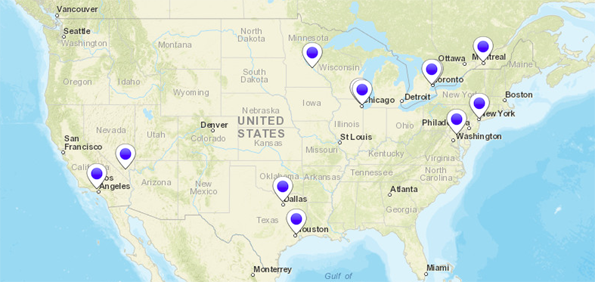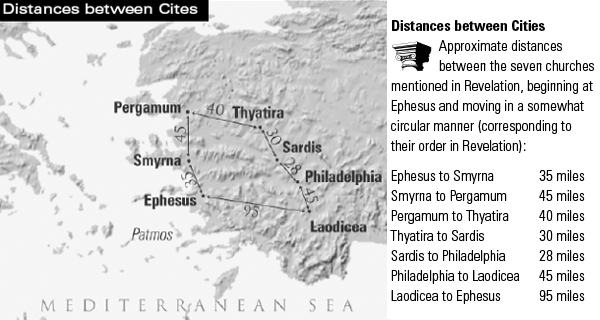Bulgarian Evangelical Churches in Texas (2021 Report)
 Dallas: 2435 East Hebron Parkway Carrollton, Texas 75010 (outreach of the Assemblies of God – Carrollton, TX)
Dallas: 2435 East Hebron Parkway Carrollton, Texas 75010 (outreach of the Assemblies of God – Carrollton, TX)
Houston: 6400 Woodway Drive (building #C), Houston, Texas 77057 (inactive/occasional since 2012)
READ MORE:
- First Bulgarian Church in Chicago Opened in 1907
- Gateway Cities for Bulgarian Evangelical Churches
- How to Start a Bulgarian Church in America from A-to-Z
- Unrealized Spiritual Harvest as a Paradigm for Cross-Cultural Ministries among Migrant and Disfranchised Ethnic Groups in America Today
Bulgarian Evangelical Churches in Chicago (2021 Report)
Bulgarian Church of God in Chicago
2254 North Narragansett Ave, Chicago
GraceInternational.TV
Active since 1995
New Life Bulgarian Evangelical Church
1480 Oakton St – Des Plaines, IL 60018
Active since 1997
Word of Faith and Life
916 E Central Rd
Arlington Heights, IL 60005
http://www.bulgarianfamily.org/
Active since 1998
Bulgarian Baptist Church
6334 W Diversey Ave.
Chicago, IL 60639
http://novonachalo.org
Active since 2005
READ MORE:
- First Bulgarian Church in Chicago Opened in 1907
- Gateway Cities for Bulgarian Evangelical Churches
- How to Start a Bulgarian Church in America from A-to-Z
- Unrealized Spiritual Harvest as a Paradigm for Cross-Cultural Ministries among Migrant and Disfranchised Ethnic Groups in America Today
Bulgarian Evangelical Churches in America (2021 Report)
CURRENTLY ACTIVE CHURCHES/CONGREGATIONS:
Bulgarian Evangelical Churches in Chicago (2017 Report)
Bulgarian Evangelical Churches in Texas (2017 Report)
Bulgarian Evangelical Churches – West Coast (2017 Report)
- Los Angeles (occasional/outreach of the Foursquare Church – Mission Hills, CA)
- Las Vegas (outreach of the Foursquare Church – http://lasvegaschurch.tv)
- San Francisco (occasional/inactive since 2012, Berkeley University/Concord, CA)
- Phoenix, Arizona
Bulgarian Evangelical Churches Canada (2017 Report)
- Toronto (inactive since 2007)
- Toronto/Slavic (active since 2009)
- Montreal (occasional/inactive since 2012)
Atlanta (active since 1996)
CURRENTLY INACTIVE CHURCHES/CONGREGATIONS:
- New York, NY (currently inactive)
- Buffalo, NY (occasional/inactive)
- Jacksonville, FL (occasional/inactive since 2014)
- Ft. Lauderdale / Miami (currently inactive)
- Washington State, Seattle area (currently inactive)
- Minneapolis, MN (occasional/inactive since 2015)
READ MORE:
- First Bulgarian Church in Chicago Opened in 1907
- Gateway Cities for Bulgarian Evangelical Churches
- How to Start a Bulgarian Church in America from A-to-Z
- Unrealized Spiritual Harvest as a Paradigm for Cross-Cultural Ministries among Migrant and Disfranchised Ethnic Groups in America Today
Facebook Is Still King Among Social Networks for Churches in 2021
Facebook Is Still King Among Social Networks
If your church is deciding on which social network to use, Facebook is still number one. In fact, Pew Research Center found that 68% of adults are Facebook users. The only other network that came close was YouTube at 40%. However, using both doesn’t hurt, especially if your church focuses on video content.
Don’t Count Out Instagram
Many church statistics focus mainly on Facebook for social media, but it’s important to not count out Instagram. Not only do 35% of adults use Instagram, but Pew also found that 71% of 18-24 year-olds use Instagram. If you’re trying to reach out to a younger audience, it’s worth expanding your social media strategy to include Instagram.
YouTube Works Well For Younger Members
Want to better engage your younger members or expand your reach to 18-24 year-olds? Pew found that 94% of people in that target demographic use YouTube regularly. Of course, 75% of adults overall use YouTube. So, it’s beneficial no matter what age you’re trying to reach. Consider YouTube for sermons, showing community outreach programs in action, Bible study sessions and even fun skits to show a humorous side to your church.
Mega Churches Aren’t Preferred in 2021
While mega churches seem to have it all, only 8% of all church goers attend one. Part of the reason is they’re just too big. However, they do have the benefit of having a budget that allows them to reach more people online than most smaller churches.
Ministry by Walking Around and the Network of Seven Churches of Revelation
Ministry by Walking Around and the Network of Seven Churches of Revelation
Although the Book of Revelation has been vastly studied and interpreted throughout church history, usually the focus is on one major issue within the text, namely, the role and future of the church. The main reason for this has been the in-depth prophetic and pastoral messages to the Seven Churches.
The value of the messages to the Seven Churches of Revelation is constituted by the fact that they are the last recorded Biblical messages to the Christian Church.[1] The letters to the Seven Churches obviously do not contain all of the usual elements used in the New Testament epistolary form. It is generally accepted that they were written as an application of the Revelation context and not as individual messages to the churches.
This contextual connection between the seven letters suggests a network of inter-church communication which was established between the seven churches. Several common elements are obvious from the text, the most obvious is their common geographical location as shown in Figure 1.
Figure 1: Distances between the Seven Cities of Revelation
The addressed churches are located clockwise, almost like they are forming a strategic circle of ministry.[2] Most churches are located thirty to forty miles from one another, which perhaps was the possible daily limit for traveling during that time. The shape of the circle of ministry, based on the order in which the churches were addressed, suggests a method of managing known today as Management by Walking Around (MBWA). The example in Revelation not only presupposes such methodology, but purposefully gives its clockwise direction in relation to the location of origin of the letters from the Island of Pathmos.
The purposeful positioning of the churches provided a common network (circle of ministry). It is also obvious from the text that at the time of writing, simplicity and democracy in organization were characteristics of the New Testament church government.[3] In the context of networking, each church maintained its own individuality because it is addressed separately in the text.[4]
Furthermore, the seven churches shared a common context of ministry in the area of Asia Minor which consisted of a great mixture of languages, customs and religions. All of the seven churches were located in cities which were under Roman rule and combined the customs of Roman, Greek, Assyrian, Persian, Babylonian, Egyptian and Jewish cultures as well as the various languages and dialects within them. The commonality in the context of ministry continued with the presence of numerous religious groups, cults, sects and gilds which were closely interwoven with civil affairs. Universal citizenship, universal religion, and a universal church were all ideas for which the Roman Empire was beginning to prepare. In such context, the seven churches shared a common goal of ministry, namely, spreading the Christian message.[5]
The seven letters were inspired by one occasion and one purpose as a tool for inter-church networking.[6] The message was not sporadic or spontaneous but thoughtfully planned and designed for each of the churches, based on an in-depth knowledge of the individual problems, members and solutions for future development.[7] The text demonstrates a common structure within the church illustrated by the common structure shared by each message. The letters reveal that the congregations shared similar practices of worship, ministry and teaching which were accompanied by problems and persecution.
A significant part of the common structure was the leadership because each church had a divinely-appointed messenger,[8] addressed by a common “divinely-charged”[9] network elder, who received a transmitted divine message. Such process shows that the networking was done by means of communication, of which the epistolary form is also proof.[10] The written text was only a formal documentary or a contract of the holistic communication accomplished through various multimedia means including those that relied on audio, visual and other senses. It constructed a mystical, divinely-inspired, supernatural and non-virtual reality which transformed the recipient of the message in the same way it did the messenger. Through this means, the network communication was not a miscommunication, but rather an authentic translation from the divine source to the very members of the congregations.
This form of communication was absolutely necessary for the common context of ministry in which the seven churches operated. This common context was the earth, not heaven,[11] and their common goal was to conquer.[12] Yet, at the same time the text is undisputable in that each church contained people prepared to conquer. This fact makes the victory of the church inevitable. Thus, while the churches are dealing with various problems and persecutions, they are already conquerors.
This observation brings the reader to the final commonality which the seven churches share; namely, that besides the earthly network of ministry there is another greater, divine, heavenly network which is in control. Such a conclusion is obvious from the fact that all of the churches without exception are known to the sender of the messages.[13] Their problems are relevant, criticism and encouragement which are prophetically delivered solutions are divinely provided and conquest of the church over the problems is definite and inevitable. This is undisputable proof that a God-centered New Testament networking of churches is the dependable and enduring model for both ministry networking and church government. Precisely this heavenly network is the supernatural source of the unique approach through which problems of the churches are to be solved. Thus, in addition to a common present reality, the churches share a future earthly applicability of the paradigm of ministry which makes their message relevant today.[14]
[1] Wade H. Horton, Lectures on the Seven Churches (Cleveland: Pentecostal Resource Center, n/a), 6.
[2] Henry M. Morris, The Revelation Recorded (Wheaton: Tyndale House Publishers, 1987), 66. Merril Tenney, Interpreting Revelation (Grand Rapids: Wm. B. Eerdmans Pubslihing Co., 1957), 50. For an in-depth discussion on the geographical location of the Seven Churches, its significance for the circulation of the letters and the leadership organization see William M. Ramsey, The Letters to the Seven Churches (Grand Rapids: Baker book House, 1979), 186.
[3] McDowell, 38.
[4] McDowell, 37.
[5] Ramsey, 120-21.
[6] Ramsey, 40.
[7] Ramsey, 39-40.
[8] Bruce M. Metzger, Breaking the Code (Nashville: Abingdon Press, 1993), 30. Ramsey, 69, 74ff.
[9] Ramsey, 80.
[10] McDowell, 37.
[11] Metzger, 29.
[12] Metzger, 30.
[13] Wade Horton, Seven Golden Candlesticks (Cleveland: Pathway Press, 1974), 72.
[14] Edward A. McDowell, The Meaning and Message of the Book of Revelation (Nashville: Broadman Press, 1951), 35. Clovis G. Chappell, Sermons from Revelation (New York: Abingdon-Cokesbury Press, n/a), 59.
2020 Vision for Bulgarian Evangelical Churches
 Over a decade ago, after publishing Bulgarian Churches in North America: Analytical Overview and Church Planting Proposal for Bulgarian American Congregations Considering Cultural, Economical and Leadership Dimensions, we purposed to explore the possibility of implementing the church planning program among Bulgarian Diasporas in various destination countries of migration.
Over a decade ago, after publishing Bulgarian Churches in North America: Analytical Overview and Church Planting Proposal for Bulgarian American Congregations Considering Cultural, Economical and Leadership Dimensions, we purposed to explore the possibility of implementing the church planning program among Bulgarian Diasporas in various destination countries of migration.
With this in mind, we carried the vision for establishing 20 Bulgarian churches outside of Bulgaria by the year 2020. Cyprus, the United Kingdom and Canada were among the first to successfully implement our program. Bulgarian migrant communities in France, Italy and especially Spain and Germany followed with great enthusiasm – there are 7 Bulgarian evangelical churches active in Span today, and 18 in Germany.
Of course, not all parts of the program proved to be efficient. The program’s modules and training that was implemented, however, have produced 47 strong church plants thus far and the number is growing every month. The program proposed has been confirmed by the leadership we have received from the Holy Spirit. Our commitment to seize the opportunity and work toward adding more Bulgarian churches by the year 202 has by far surpassed all expectations.
READ ALSO:
- Global Network of Bulgarian Evangelical Churches outside of Bulgaria (2018 Report)
- Unrealized Spiritual Harvest as a Paradigm for Cross-Cultural Ministries among Migrant and Disfranchised Ethnic Groups in America Today
Is your church ready for GDPR?
You’ve probably heard about GDPR. The new European data protection regulation that applies practically to everyone entered in power on May 25, 2018. Especially if you operate a church or ministry website, it’s most likely that there’s already a process for getting your systems in compliance with the regulation.
GDPR in effect adds to or supersedes existing legislation on data protection, which up to this point has been provided by the Data Protection Act 1998 (DPA) and the Privacy and Electronic Communications Regulations 2003. The regulation is basically a law that must be followed in all European countries (but also applies to non-EU organizations that have users in the EU). In this particular case, it applies to companies that are not registered in Europe, but are having European customers. So that’s most church organizations. The GDPR introduces a stronger requirement on accountability for data controllers. This means that you must be able to show that you are complying with the principles by providing evidence. For example, where you process on the basis of consent, you should to store those consents. Since consent should be specific to a “purpose”, you may need separate consent to cover different areas of data processing within the life of the church
The impact is going to be huge as there are a number of very significant changes that will impact every organization that processes data inside the EU. This includes the Church, which has been that in most cases, very poor at complying with legislation. If your church organization or church website process personal information, of any kind, inside the EU, GDPR applies to you. This applies to Churches who are owned/run from outside the EU. If you process any data in the EU like website visitors, live broadcast viewers or attendance, GDPR needs to be on your radar.
Though, GDPR allows religious (amongst others) not-for-profit bodies to process data without specific consent as long as it relates only to members or former members (or those who have regular contact with it in connection with, there is still a great risk. Data that “reveals religious belief” becomes special category data – which requires additional care with regard to processing. Reveling of “religious belief” should not be assumed simply because someone attends church or church events, becomes a “friend” or gives money to a church. However, where someone is required to have affirmed belief (e.g. that they are baptized or that they are a member of the Church) e.g. processing of the electoral roll, then this could be argued to reveal religious belief.
In regard of this, the rights of the user/client (referred to as “data subject” in the regulation) under the new GDPR law are:
- the right to erasure (the right to be forgotten/deleted from the system),
- right to restriction of processing (keep the data, but mark it as “restricted”)
- the right to data portability (export data in a machine-readable format),
- the right to rectification (the ability to get personal data fixed),
- the right to be informed (human-readable information, rather than privacy terms)
- the right of access (the user is able to see all the data you have about them).
Additionally, the relevant basic principles are:
- data minimization (do not collect more data than necessary),
- integrity and confidentiality (all security measures to protect data)
- measures to guarantee that the data has not been inappropriately modified.
To set some context, it may be helpful to ask, “Whose data is it?” If we believe that the data we hold on our systems belong to us then we are likely going to be resistant to GDPR. If we are 100% clear that each person’s personal data belongs to that individual alone, and that we are custodians of their data, then we’ll likely have a much healthier response to GDPR. When we see ourselves as custodians, charged with a “trust,” we’ll likely want to do our very best when we receive, store and process people’s personal data. And also be more ruthless about removing any data that we don’t wish to hold within that trust.
The legal basis for processing data is premised on one or more of six conditions:
- consent of the data subject
- performance of any contract with the data subject relating to it
- compliance with a legal obligation
- that the vital interests of the data subject are protected
- that the data acquired and held is needed for the performance of a task carried out by the organization in the public interest
- that the legitimate interests of data subjects are protected
None of the other requirements of the regulation have an exception depending on the organization size, so “I’m small, GDPR does not concern me” is a myth. “Personal data” is basically every piece of data your organization has collected that can be used to uniquely identify a person.
Just an every day example, Google Maps shows you your location history – all the places that you’ve been to. Displaying your church’s map allows visitors to find you but also records their intent of movement history on any electronic device that can lock a GPS location (this includes any PC with internet connection too). It is still the visitor’s personal information that GDPR allows storing only under certain legal conditions.
An individual can object at any time to you using their personal information for:
- Direct Marketing (including fundraising). If an individual objects to you using their data to contact them for this purpose then you must cease immediately. There are no exemptions.
- Scientific, historical, research or statistical purposes. You can have an exemption from this if you have a legitimate need to keep processing it, e.g. you need to send Gift Aid information to HMRC.
- A ‘legitimate interest’ of the church (ex. video broadcast, family events, small group home gatherings, fund raisers, prayer call campaigns, etc.).
Age check – GDPR introduces special protection for children’s personal data. Broadly, for a child there will be a need to have consent from a parent or guardian in order to process any data lawfully. You should ask for the visitor’s age, and if the user is a child, you should ask for parent permission.
Keeping data for no longer than necessary – if your church collects the data for a specific purpose (e.g. product purchase, email campaign, call list, etc.), you have to delete it/anonymize it as soon as you don’t need it. Many churches offer welcoming package, registration, online offering, etc. The visitor’s consent goes only for the particular item for which you are obligated to keep a consent form.
Cookies – Every basic website nowadays use a number of different types of cookies. They are all subject of a different regulation (a Directive that will soon become a Regulation). However, GDPR still changes things when tracking cookies are concerned. I’ve outlined my opinion on tracking cookies in a separate post.
Encrypt the data in transit – means that communication between your application layer and your database (or your message queue, or whatever component you have) should be over TLS.
Encrypt the data at rest – this again depends on the database (some offer table-level encryption), but can also be done on machine-level
Implement pseudonymisation – the most obvious use-case is when you want to use production data for the test/staging servers. You should change the personal data to some “pseudonym”, so that the people cannot be identified.
Don’t log personal data – getting rid of the personal data from log files (especially if they are shipped to a 3rd party service or a plugin.
Above all, DO NOT use data for purposes that the user hasn’t agreed!
Finally, GDPR mandates identification and notification of breaches of the regulation to the individual, and sometimes the national regulator (the Information Commissioner’s Office, ICO) within 72 hours. The maximum fine for organizations which breach the regulation will be €20 million. Quite apart from anything else, this should give charity trustees pause for thought.
Where to begin? Start with the following questions and actions:
- Does your collection and use of personal or sensitive data fall within the “purposes” of your current Data Protection policy?
- Are there current uses that fall outside the current scope?
- Are your policy’s stated “purposes” sufficiently broad enough to cover all your ministry and activity? Highlight any areas that need further expansion in your policy.
- Note down any third party “processors” that use or further process the personal data like: Book keeper, WordPress, MailChimp, Planning Center, Stripe, GoCardless, Textlocal.
- Identify and list all the ways your church adds personal data into each module, including contact details, attendance or tracking data, and notes.
- Note any additional processing of information you carry out in your admin workflows within each module, such as communications you send, notifications to others in your church that get triggered, and any reports you produce and distribute in those workflows.
- Are there any areas of “bad practice” or risk that needs addressing? For example, using images from people’s social media profiles without consent or audio/video and live broadcast recordings of the same. Notes that express opinion rather than fact, or where consent has not been obtained for all of these.
- In respect of handling personal data, how do your church’s procedures demonstrate accountability practices?
- Are any changes communicated to those in your church or team that need to know?
- If you were a newcomer to your church, would you as a newcomer be clear at every point of submitting your personal data, what the church’s privacy notice and data protection policy is? Would you feel sufficiently informed about how your data will be used and would know how you could opt out if you wanted to?
Common sense disclaimer: This article is not legal advice. You need to contact your church attorney for a complete evaluation and action guide on how to fully protect your organization.
2018 Annual Conferences of Bulgarian Churches in America
 The congregations within the Alliance of the Bulgarian Evangelical Churches in North America meet every Memorial Day weekend for an annual conference:
The congregations within the Alliance of the Bulgarian Evangelical Churches in North America meet every Memorial Day weekend for an annual conference:
- Dallas (2002)
- Chicago (2003)
- Minneapolis (2004)
- Los Angeles (2005)
- Dallas (2006)
- Chicago (2007)
- Minneapolis (2008)
- Los Angeles (2009)
- Houston (2010)
- Las Vegas (2011)
- Chicago (2012)
- Dallas (2013)
- Minneapolis (2014)
- Las Vegas (2015)
- Houston (2016)
- Chicago (2017)
- Jacksonville (2018)
READ ALSO:
- The story of the first Bulgarian Church of God in the Untied States
- San Francisco Springs
- Finding Friends in Phoenix or the Story of an Arizona State Quarter
- Prognoses about Bulgarian Churches in North America
WordPress for Churches in 2018

- WebMinistry 2.0 for Churches {Step-by-Step Guide} Part 1: The Web Process
- WebMinistry 2.0 for Churches {A Step-by-Step Guide} Part 2: 5 Reasons to use WordPress
- WebMinistry 2.0 for Churches {A Step-by-Step Guide} Part 3: WordPress and Its Famous 5 Minute Installation
- WebMinistry 2.0 for Churches {A Step-by-Step Guide} Part 4: Ten Useful Plug-ins
- WebMinistry 2.0 for Churches {A Step-by-Step Guide} Part 5: 5 Things to Learn about WebMinistry 2.0










